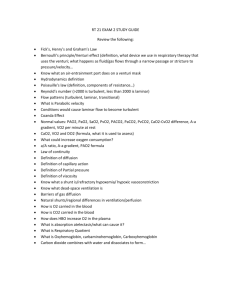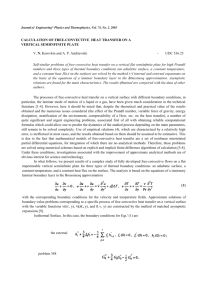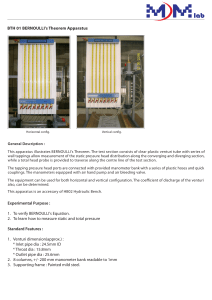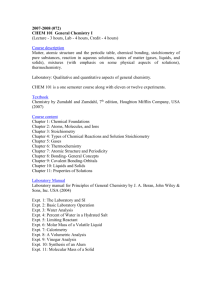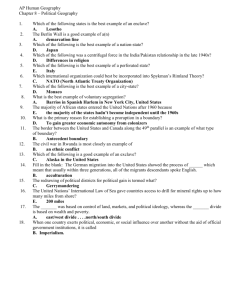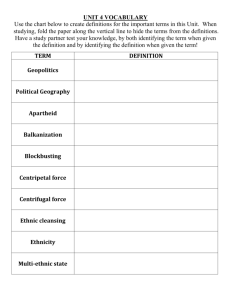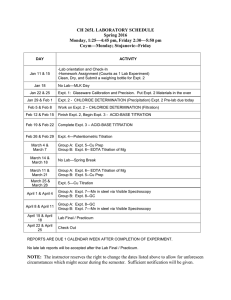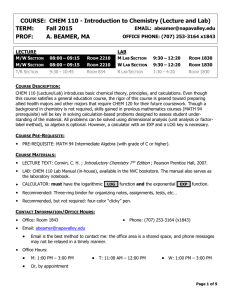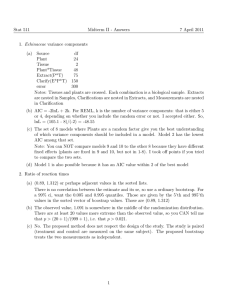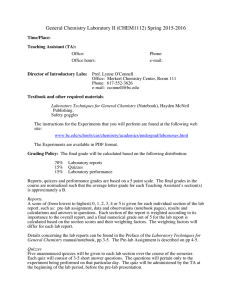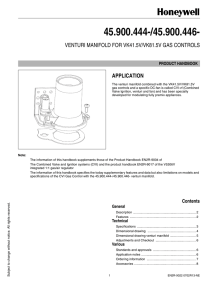C d
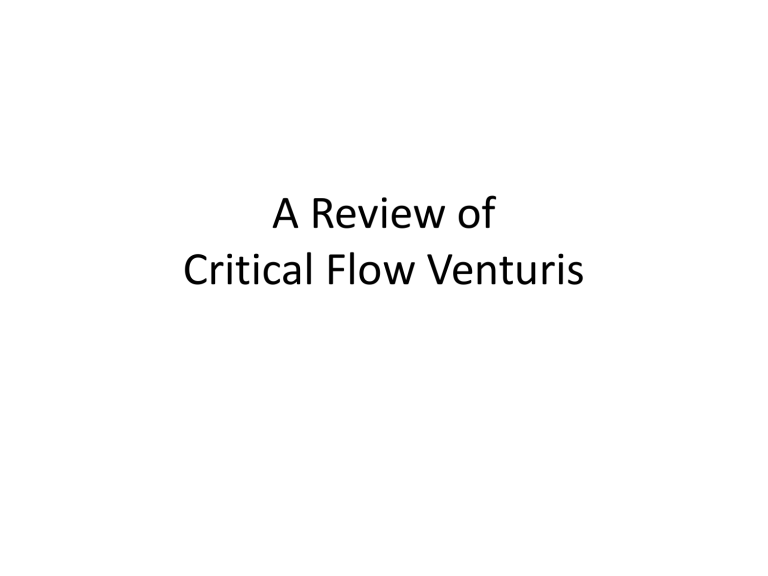
A Review of
Critical Flow Venturis
Sonic Nozzles
P
M zRT
th
Aa a
c p c v
RT
th
AP
0
C
R
*
RT
0
M
Discharge Coefficient C d
PS
0.992
0.99
0.988
0.986
0.984
0.982
0.98
0.978
0.976
0 50000 100000
Re
PS
th
C d
th
AP
0
C
R
* M
RT
0
150000 200000
0.992
0.99
0.988
0.986
0.984
0.982
0.98
0.978
y = -4.5881x + 1.0002
0.976
0.002
0.0025
0.003
0.0035
0.004
0.0045
0.005
Re
-1/2
Isentropic, 1-Dimensional Flow, Perfect Gas
Velocity at each cross section of a convergentdivergent critical venturi (Reynolds 1886,
Rayleigh 1916)
A
A
*
f f
,
Ma
1
1
2
2
1
1
Ma
1
1
Ma 2
2
2
1
1
Isentropic, 1-
Dimensional Flow,
Perfect Gas, Fully
Expanded (no shocks)
T
T
0
P
P
0
T aw
( R
0 .
75 )
Inviscid Core Flow
Smith and Matz 1962, “A non-one- dimensional flow exists because of the centrifugal forces created by the turning of the flow in the contraction section.”
1-D:
2-D:
Hall 1962, Kliegel and Levine 1969 0.12 %
C d, core
1
2
2
3
3
4
4 where
2
,
3
, and
4 are gas species dependent components and is the expansion parameter (R or 1 + R ).
Λ
Velocity Boundary Layer: C d scales with Re -1/2
Blasius: boundary layer on a flat plate
1 .
7208
Re x x
Laminar: Tang 1969, Geropp 1971, similarity transformations
Turbulent: Stratford 1964, integral boundary layer technique
Mickan 2006
Transition at Re ≅ 1 x 10 6
C d, bl
1
a
1
m
Re
n a
2
2 m
Re
2 n where
Ω
= r */ R is the throat curvature ratio (nominally
0.25 for an ASME / ISO venturi), a
1 and a
2 are coefficients, and m and n are exponents whose values depend on whether the flow is laminar or turbulent.
Reynolds Number Scaling
1.000
1.000
0.995
0.995
0.990
0.990
0.985
0.985
0.980
0.970
0.965
0.960
0.955
0.01
0.955
0.1
1 10 100 1000
0.0E+00 5.0E+05 1.0E+06 1.5E+06 2.0E+06 2.5E+06
0.000
0.002
0.004
0.006
0.008
0.010
0.012
0.014
C d
Re
1 / 2 Re
Re
-1/2
Boundary Layer Transition
Ishibashi and Arnberg, The Effect of Inlet Geometry on the Critical Flowrate of Toroidal Throat
Venturi Nozzle, CFVN Workshop, Quedlinburg, Germany, June, 2005
Analytical C d predictions agree well with experiments
Johnson and Wright 2008
Mickan 2006
Gas Species Effects
•Solid lines from Nakao and Takamoto, Discharge Coefficients of Critical Flow Venturi
Nozzles for CO
2.36 mm.
2 and SF
6
, Transactions of the ASME, December, 2000, d = 0.295 to
•Points from NIST experiments, d = 0.387 mm.
C d can be treated as numerous uncoupled physical phenomena
C d
= C
R
* C inv
C vbl
C
Tbl
C
C vib
+ higher order terms
